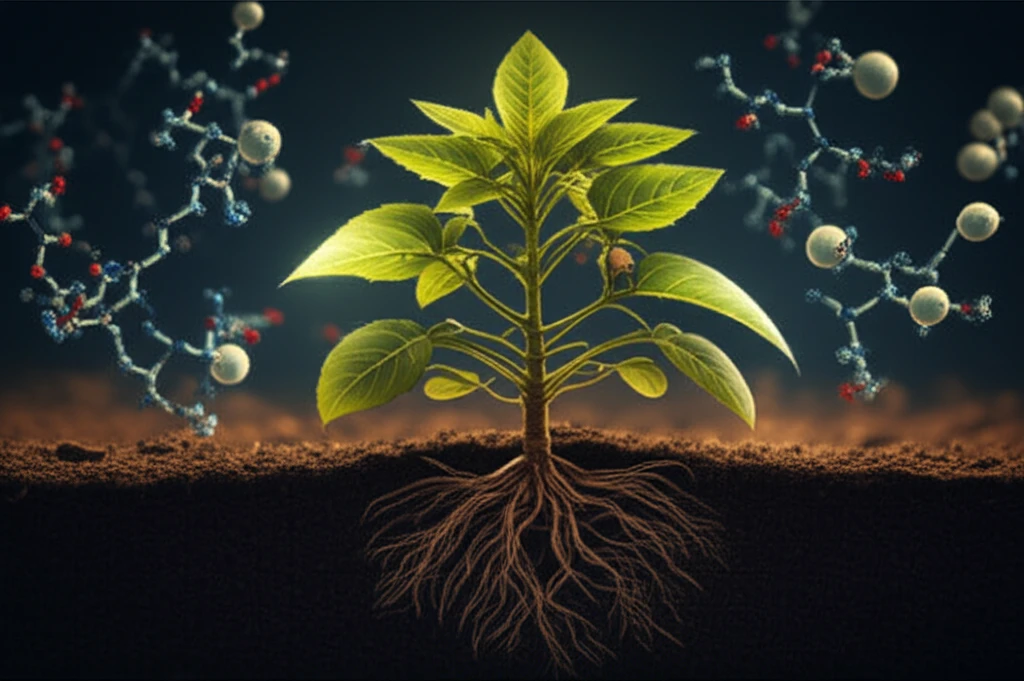
The Key to Plant Growth: Unlocking the Secrets of Phospholipids
"New research illuminates how specific enzymes control phospholipid production, impacting plant development and offering insights for future agricultural advancements."
Phospholipids, a primary class of membrane lipids, are essential for all life. In plants, they’re vital for growth and development, but how plants create and regulate these lipids has remained somewhat of a mystery. Unlike animals, plants' phospholipid pathways aren't fully understood, making it difficult to manipulate them for better growth or resilience.
A recent study published in Plant Physiology sheds light on this intricate process. The research zeroes in on a family of enzymes called phospho-base N-methyltransferases (PMTs) in Arabidopsis thaliana, a common model plant. Scientists have long suspected PMTs play a role in phosphatidylcholine (PC) biosynthesis, a major type of phospholipid, but this new research clarifies how these enzymes function and why they’re so critical.
This article breaks down the study’s key findings, explaining how PMTs affect plant growth, what happens when these enzymes are disrupted, and what this means for the future of plant science and agriculture. It translates complex research into understandable insights.
PMTs: The Master Regulators of Plant Growth and Lipid Production

The study focuses on three PMT enzymes (PMT1, PMT2, and PMT3) in Arabidopsis. To understand their roles, researchers created mutant plants where one or more of these PMT genes were disabled. They then carefully observed how these mutations affected plant growth and PC production.
- PMT2 is a Root Growth Powerhouse: PMT2 shows distinct tissue-specific expression pattern and is highly active in roots. Disrupting PMT2 alone didn't cause major problems, but when combined with a PMT1 mutation, root growth was severely stunted. This suggests PMT2 works alongside PMT1 to ensure healthy root development.
- PMT1 and PMT3 are Essential for Seedling Survival: When PMT1 and PMT3 were both disabled, seedlings struggled to survive, and their PC content plummeted. Adding a PMT2 mutation to this mix proved lethal, indicating that all three PMTs are necessary for PC production, particularly in shoots (stems and leaves).
- PMTs are Essential for de novo PC Biosynthesis: Without the function of the three PMTs, no detectable de novo PC biosynthesis was observed, meaning the plant couldn't produce new PC.
The Broader Implications: From Lab to Field
This research provides a clearer understanding of how plants control phospholipid production, which in turn, regulates growth and resilience. By pinpointing the specific roles of PMT1, PMT2, and PMT3, scientists now have more precise targets for manipulating PC biosynthesis.
What does this mean for the future? Imagine crops engineered for:
<ul><li>Enhanced Root Systems: Modifying PMT activity could lead to plants with deeper, more robust root systems, improving nutrient uptake and drought tolerance.</li><li>Improved Seedling Vigor: Optimizing PMT function in shoots could boost seedling survival rates, particularly in challenging environments.</li><li>Increased Lipid Production: Manipulating PC biosynthesis could enhance the production of valuable lipids for biofuels, pharmaceuticals, or other industrial applications.</li></ul>
